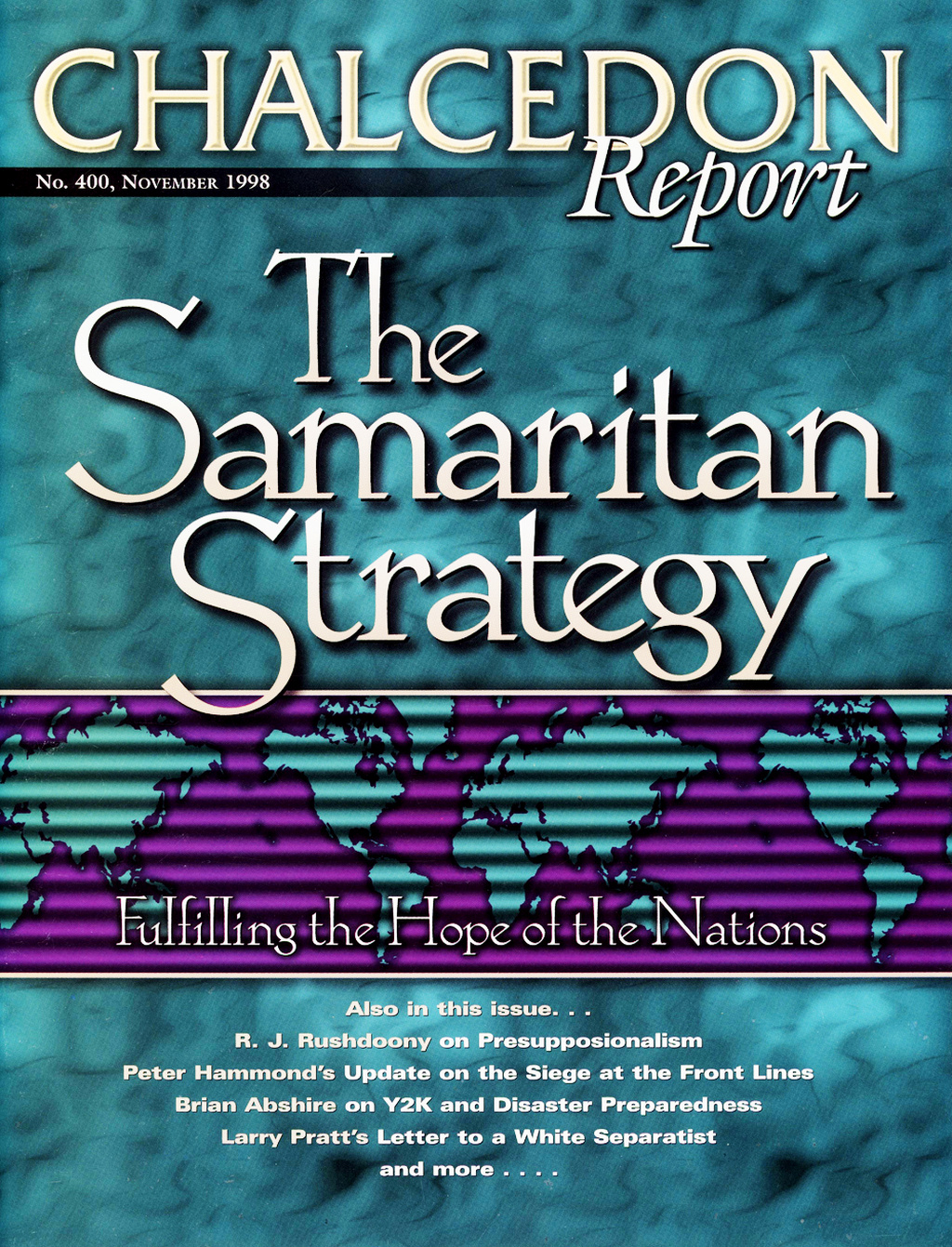
Magazine Issue
The Samaritan Strategy: Fulfilling the Hope of the Nations
November 1998 Articles:
Trivializing the Faith

- R. J. Rushdoony
Join Chalcedon's Cause
- P. Andrew Sandlin
Welcome to the Revolution: The Christian Student Worldview Conference
- P. Andrew Sandlin

Men Destitute of the Truth

- Mark R. Rushdoony
Y2K and Disaster Preparedness: Some Thoughts on Survival and Security In An Unstable World
- Brian M. Abshire
Throw the Rascals Out!
- Ellsworth McIntyre
Children and the Dominion Mandate (Part 1)
- William O. Einwechter
The Samaritan Strategy
- Susan Burns
Under Siege: A Report from the Front Lines
- Peter Hammond
Letter to a White Separatist
- Larry Pratt
Presuppositionalism

- R. J. Rushdoony

Random Notes, 84

- R. J. Rushdoony
All I Really Need to Know I Learned in the New Testament (Part 2)
- Steve M. Schlissel